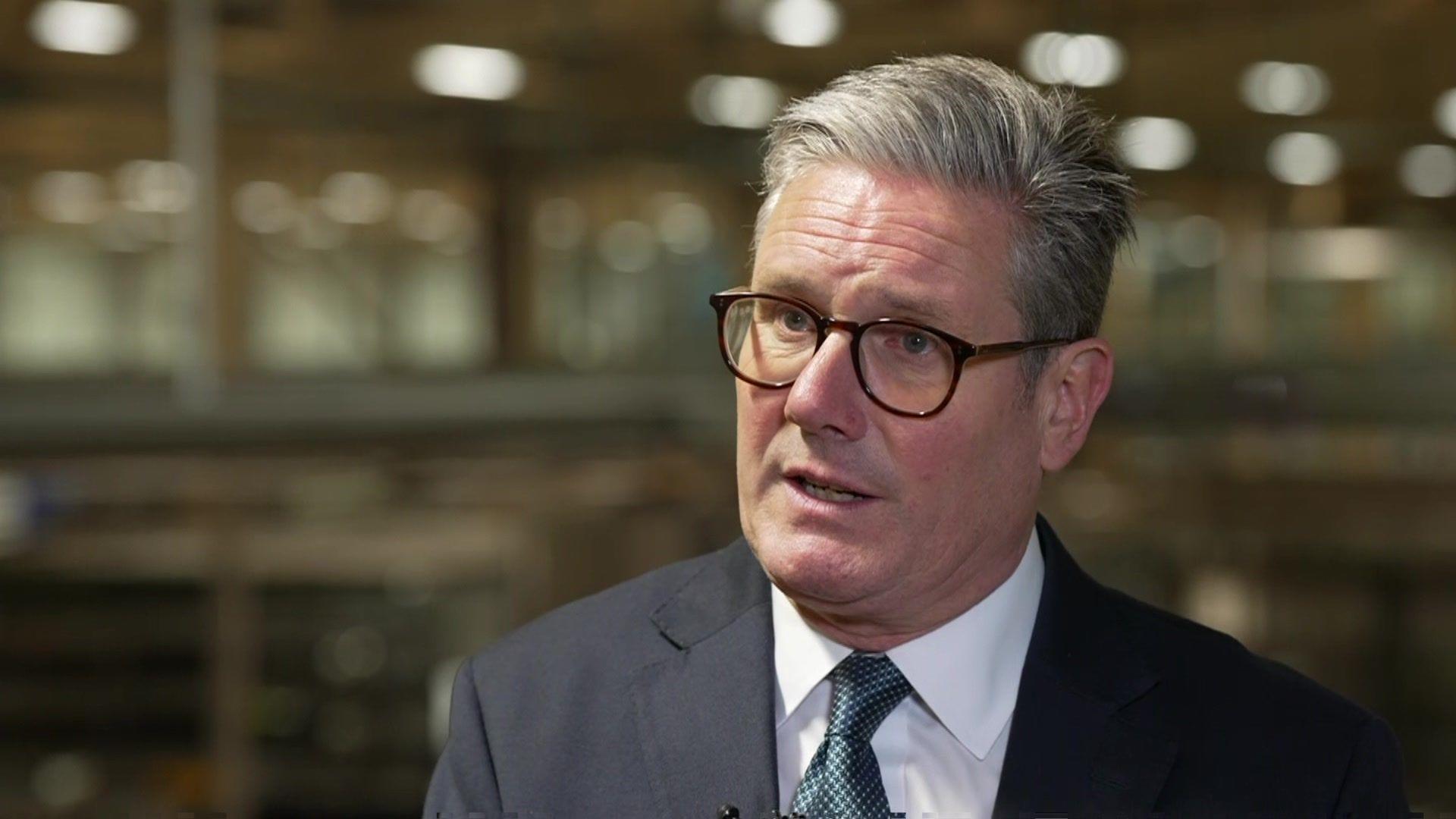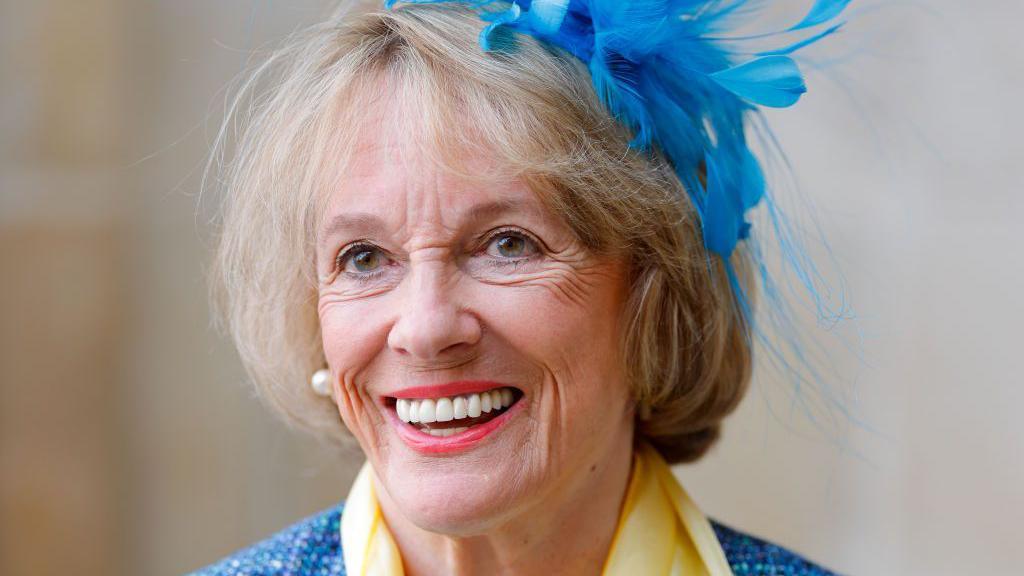Starmer 'pleased' assisted dying vote will take place

- Published
Sir Keir Starmer has said he is "very pleased" MPs will get the chance to debate and vote on the issue of assisted dying.
The prime minister confirmed his government would remain neutral on the subject and that his MPs would be given a free vote, rather than having to follow a party line.
Asked how he would vote, Sir Keir said his views were "pretty well known" but that he would look at the details of the bill being proposed.
In 2015, Sir Keir supported an assisted dying bill and last year told reporters: "I personally do think there are grounds for changing the law”.
On Thursday, Labour MP Kim Leadbeater confirmed she would introduce a bill giving terminally ill people in England and Wales the right to choose to end their life.
Leadbeater's bill has yet to be finalised but is likely to be similar to Lord Falconer's proposal which would give terminally ill adults with six months or fewer to get medical help to end their own lives.
Assisted suicide - intentionally helping another person to end their life - is currently banned in England, Wales and Northern Ireland, with a maximum prison sentence of 14 years.
Assisted dying is generally used to describe a situation where someone who is terminally ill seeks medical help to obtain lethal drugs which they administer themselves.
Relief and fear ahead of assisted dying bill vote
- Published4 October 2024
MPs to get first vote on assisted dying for nine years
- Published4 October 2024
Backbench MPs do not normally get time in Parliament for their bills to be debated, but the Spen Valley MP's proposal will be allotted space after she came first in a ballot.
The bill is expected to be formally introduced in Parliament on 16 October, and a debate could take place within weeks.
Even if it is approved at an initial vote, the bill would still be debated at further stages in the parliamentary process.
It would also need to be agreed by both the House of Commons and the House of Lords, before becoming law.
Baroness Tanni Grey-Thompson, a former paralympian and crossbench peer in the House of Lords, said she had concerns "about the impact on vulnerable people, on disabled people, coercive control, and the ability of doctors to make a six-month diagnosis".
However, broadcaster Dame Esther Rantzen, who has been calling for change, welcomed the bill, telling the BBC: "All I’m asking for is that we be given the dignity of choice.
"If I decide that my own life is not worth living, please may I ask for help to die. It’s a choice."
The Childline founder has lung cancer and last year said she had joined Dignitas, the assisted dying clinic in Switzerland.

Dame Esther Rantzen has called for the law to change
Asked about the issue during a visit to Liverpool, Sir Keir said: "I made a promise to Esther Rantzen before the election that we would provide time for a debate and vote, but that it will be a free vote, and obviously that opportunity has now arisen."
He added: "I'm very pleased... that I'm able to make good on that promise to Esther Rantzen."
Asked by BBC North West Tonight if he would vote in favour of changing the law, Sir Keir said: "I think my views are pretty well know. Obviously I’ll look at the detail of whatever legislation is proposed. But the government will be neutral."
It is not easy to predict how MPs will vote on Leadbeater's bill.
The last time MPs voted on the subject was nine years ago, and the make-up of the House of Commons has changed greatly since then.
In 2015, MPs rejected a bill allowing some terminally ill adults to end their lives with medical supervision by 300 votes to 118.
Sir Keir was among the MPs backing a change, while Deputy Prime Minister Angela Rayner, Foreign Secretary David Lammy and Education Secretary Bridget Phillipson all opposed the bill.
Health Secretary Wes Streeting voted in favour in 2015 but is now understood to be "conflicted" on the subject.
Energy Secretary Ed Miliband told BBC Breakfast he would vote in favour of the assisted dying bill and described the current law as "cruel".